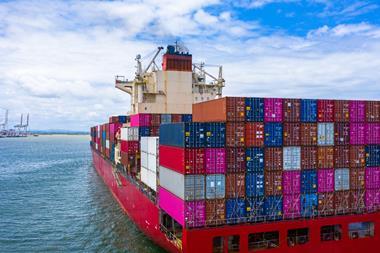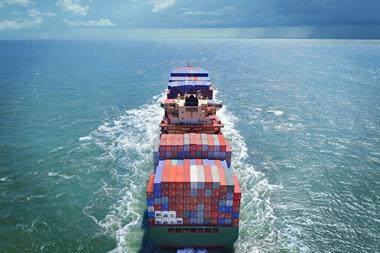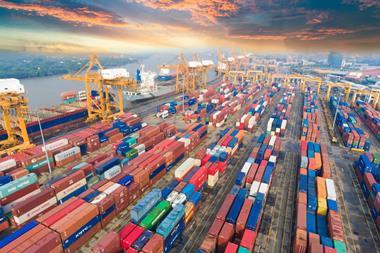Clothing, textiles and automotive industries have been most impacted by supply chain backlogs
The current Shanghai Covid lockdown has created severe delays at the port, delivering a $28 billion hit to global trade, with clothing and textiles industries having the most exposure, according to analysis by Russell Group.
Delays at one of the world’s largest ports has sent shockwaves throughout the global supply chain, as Shanghai is a crucial entry point into China’s large consumer base and for shipping items for industries across the globe.
Scenario analysis conducted by ALPS Marine has identified that clothing ($884m), textiles ($717m) along with cars and people carriers ($767m) would be typical exported commodities from Shanghai.
It is not just exports that are impacted, as Shanghai is a key financial hub for many products and goods entering China. Meat products are normally imported into Shanghai and delivered to the rest of the country.
Part of a larger backlog
The analysis was based on the 2-month time frame from early March, when the lockdown was first imposed, to early May, when the cases are starting to reduce but delays at the port are rising due to a large backlog.
Shanghai’s delays impact other countries that rely on trade with Shanghai, with 14.7% of Shanghai’s exports in this period going to the United States, to Long Beach and Los Angeles, both of which are suffering from COVID backlogs.
Suki Basi, Russell Group, MD commented on the figures: “There is an old saying that ’what is global is local and what is local is global’. In today’s era of trade disruption, we are facing another major port slowdown in China.
“This is a similar situation to the disruption at the start of the year, so the tension between local and global events is more evident and their causation is becoming increasingly connected across multiple asset classes.
“The delays in China have caused chaos across the global economy, hitting consumers and corporates alike.
“They will damage Western economies, particularly in the UK and USA, both of which are suffering high inflationary pressures.
”Any further supply chain shocks such as port delays will continue to push up prices and slow down the economic recovery of these economies.”




















No comments yet